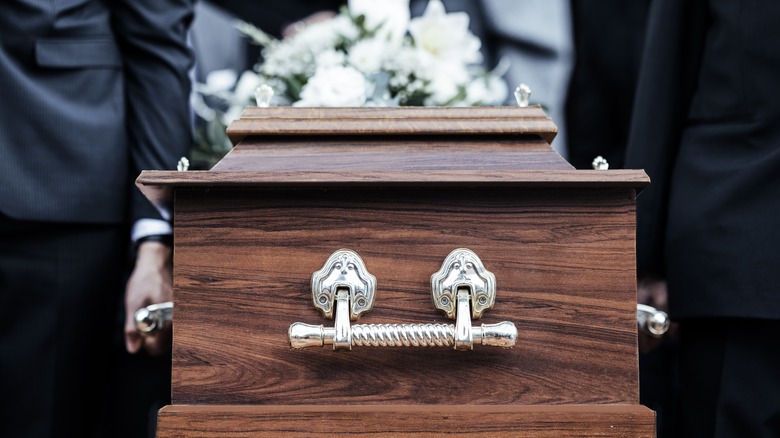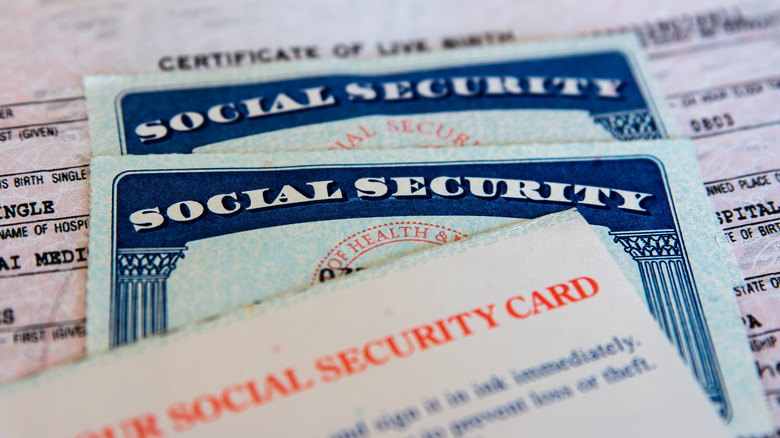What Happens To Someone's Social Security Number After They Die
A Social Security Number (SSN) is a unique identifier that connects you to vital systems like work, taxes, and government benefits for your entire life. When someone passes away, their SSN isn't given to anyone else. Instead, the Social Security Administration (SSA) marks it as belonging to a deceased person, which helps prevent identity theft and keeps records straight. Usually, a family member or the funeral home reports the death to the SSA with an official death certificate, leading to the update of their records.
After this, the SSN is added to the Death Master File. This list is used by federal agencies and financial institutions to ensure that no one tries to fraudulently claim benefits or use the SSN illegally. Despite these safeguards, the SSN's legacy persists. Banks, credit bureaus, and government programs may still reference the number to close accounts or resolve estate matters. Surviving family members should monitor the deceased's credit reports and notify relevant organizations to further prevent misuse.
Fate of a SSN after death
The Social Security Administration (SSA) ensures a deceased person's Social Security Number (SSN) is permanently retired. This means that, contrary to myths, the SSA has never recycled SSNs, even as population growth continues. This policy has been in place since 1936, when the system started with enough number combinations — there are currently over 1 billion — to ensure that recycling wasn't necessary.
The SSA uses the Death Master File (DMF) to keep track of deceased individuals' SSNs. This database is updated weekly with information from families, funeral homes, and state agencies. The DMF has two versions: a public Limited Access DMF for fraud prevention and a restricted Full DMF for certified entities like banks, credit agencies, and researchers. Organizations accessing the Limited Access DMF must complete a certification process. Institutions like Medicare and the IRS rely on the SSA's Death Master File, but delays in updates can leave the deceased's assets vulnerable.
While the DMF helps prevent identity theft, it relies on timely death reporting. Delays can leave gaps for fraud, which is why families should promptly notify the SSA using a death certificate. Financial institutions also cross-reference the DMF to freeze accounts or deny credit applications fraudulently filed under the deceased's SSN.
Protecting the identity of the deceased
Identity theft from deceased individuals, known as "ghosting," is a major issue where criminals exploit the SSNs of the deceased to open accounts, file false tax returns, or claim benefits. In 2022, the FBI's internet crime report logged 27,922 victims of identity theft, and in 2023, California alone reported 119,929 cases to the Federal Trade Commission. These numbers show how crucial it is for families to report deaths promptly to prevent such abuses.
When a loved one passes away, notify the three major credit bureaus — Experian, Equifax, and TransUnion — to place a deceased alert on the credit report. This prevents new accounts from being opened and instructs creditors to verify identities rigorously. Submit a copy of the death certificate to each bureau. Financial institutions, including banks and investment firms, should also receive death notifications to freeze or close accounts.
State agencies, such as Massachusetts' Office of Consumer Affairs, recommend limiting public details in obituaries (e.g., birthdates, addresses) to reduce fraud opportunities. At the same time, regularly monitor the deceased's credit reports for suspicious activity, even years after death, as identity thieves often exploit outdated records. The Federal Trade Commission (FTC) also advises filing an identity theft report if fraud occurs, which helps resolve disputes and block further misuse. One can file through identitytheft.gov.


